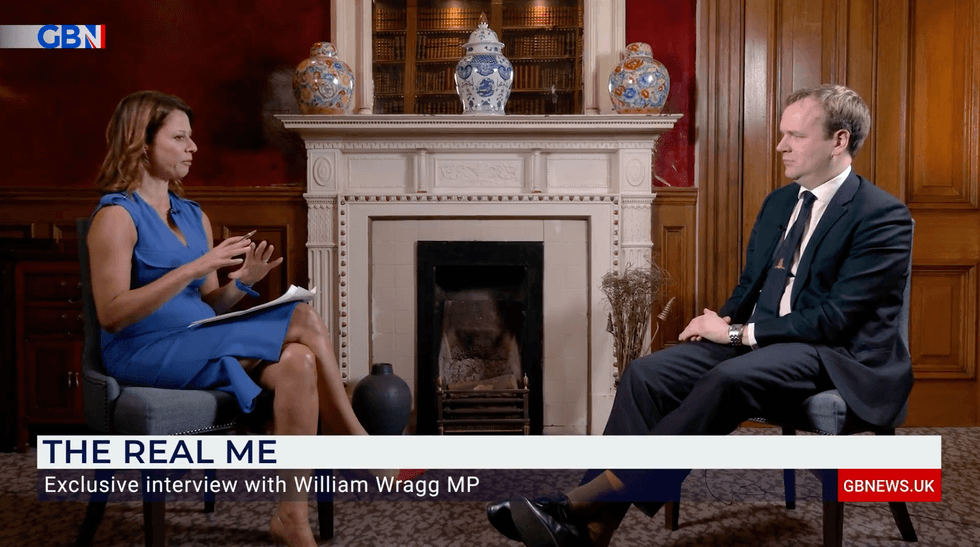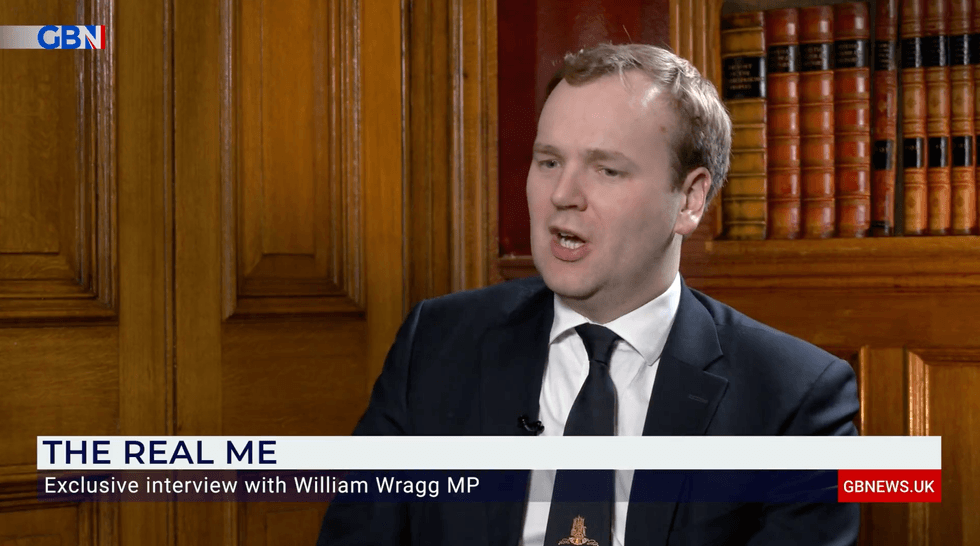An explosive new claim has come from one of the Conservative's own backbenchers
Don't Miss
Most Read
Trending on GB News
The Conservatives had a “cultural problem” of blackmailing and strong-arming MPs who stepped out of line, according to one of its own backbenchers.
William Wragg’s comments come just days after it emerged Matt Hancock threatened to block a disability centre in a Tory MP's constituency in a bid to get him to vote for the Covid tier system in England.
Wragg has previously met the police to raise concerns over the tactics used to stop MPs who were seeking to oust Boris Johnson.
In an exclusive interview with GB News, Mr Wragg said: “That never went further with the police, but I stand by what I said. I witnessed and had testimony from colleagues about the pressures that they were coming under which I felt was not just unacceptable in a political sense, but I thought it wasn't how you should treat people.

William Wragg met the police to raise concerns over the tactics used to stop MPs who were seeking to oust Boris Johnson
GB News
“I think there was a cultural problem at the time, with some within government, that they thought that they could overtly control the voting behaviour of Members of Parliament by, whether directly or implicitly, threatening to withdraw projects and funding from their constituencies, which I don't think is acceptable."
Speaking about what needed to happen next Wragg said: “Lots of things have always happened, whether they're acceptable is a different question entirely.
"I think the best way in politics, if you want to get people on board, is to convince Members of Parliament of the strength of an argument. And when that argument is relatively flimsy and people are growing tired and wearisome of it that might be a reflection on the argument.
"So, I don't think strong arm tactics are the best way. But just because it's always happened doesn't mean it's the right and healthy thing for our democracy.”Wragg, who represents Hazel Grove in Greater Manchester, also opened up on the reasons why he was quitting as an MP at the next election.
The 35-year-old said: “My misspent youth was getting into Westminster, and there's obviously an element of me that thinks that there must be more to life.
"It's not to say that I won’t miss it terribly, because despite all of the ups and downs, if I can put it that way, I really do enjoy being a Member of Parliament.”
The MP also bravely opened up about his ongoing battle with depression which struck him “acutely” last Summer.
He said: “I'm certainly not feeling as I did in August. I’m feeling genuinely much better, much more positive, much happier dare I say it. And I think, you know, the clouds or the black dog, it comes and goes throughout life. And I think the summer was a particularly acute period of it.
“Through the time that I've been an MP, there have been some tough spells, but nothing quite as affecting as it was over the course of the last summer.”
Describing how his condition impacts him he added: “Depression in my case is a profound numbness to the world and people around me. I liken (my) depression sometimes to, if you imagine this image; that you've fallen through a floor and then you land on the floor below.

William Wragg’s comments come just days after it emerged Matt Hancock threatened to block a disability centre in a Tory MP's constituency
GB News
"And you think, ‘Goodness me. Well, I've come through that and it's okay’. And then you start to hear the floorboards creak around you and you think ‘Uh oh. I'm going to be going down another level’. And so, I think it's sort of trying to break out of that cycle. And I think being public about it, that was my means of doing so.”
Explaining how he copes with the condition he added: “A lot of it is yourself. Yes, you can have the support of other people, but I do think you need to have that self-awareness in order to drive yourself.
"And that can be very small steps, simple things. But without that, I don't think you can be entirely lifted from that state from external things.
“I resisted medication for some time because on previous occasions I had - well I think I spent the best part of a few years when I wasn't.
"When I’d just become an MP actually, I was on a course of medication for a few years and I, rather in my unilateral way, decided to come off that without any thought of what the withdrawal might be to it.
"But that was the way that I dealt with things then. And so, it took a bit of time for me on this occasion. But now I do take a reasonably mild dose of sertraline each day, which is an antidepressant and also has particular helpful effects with regards to anxiety.”








